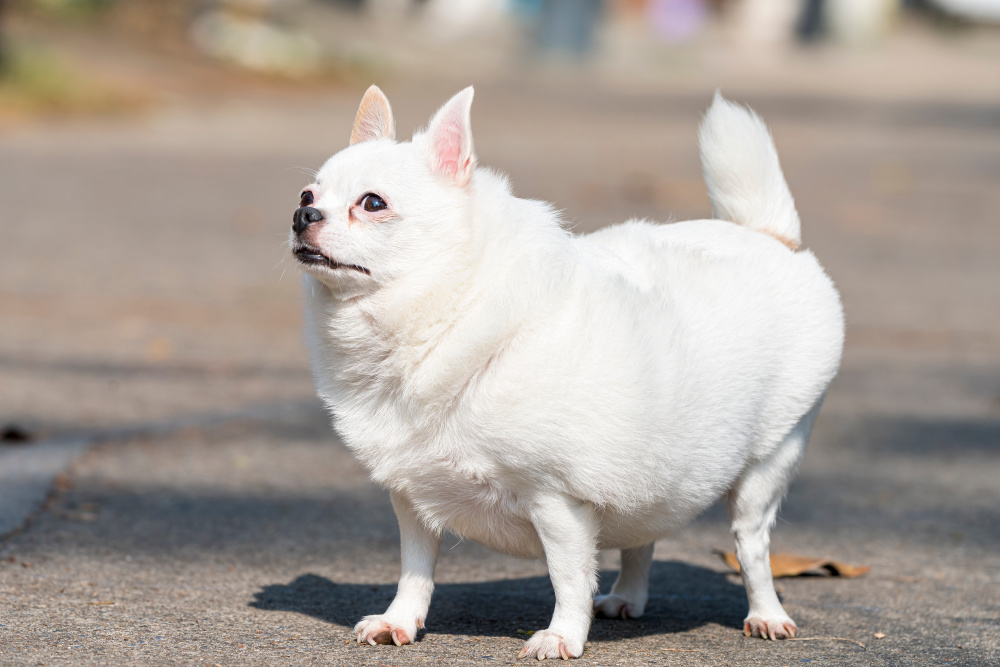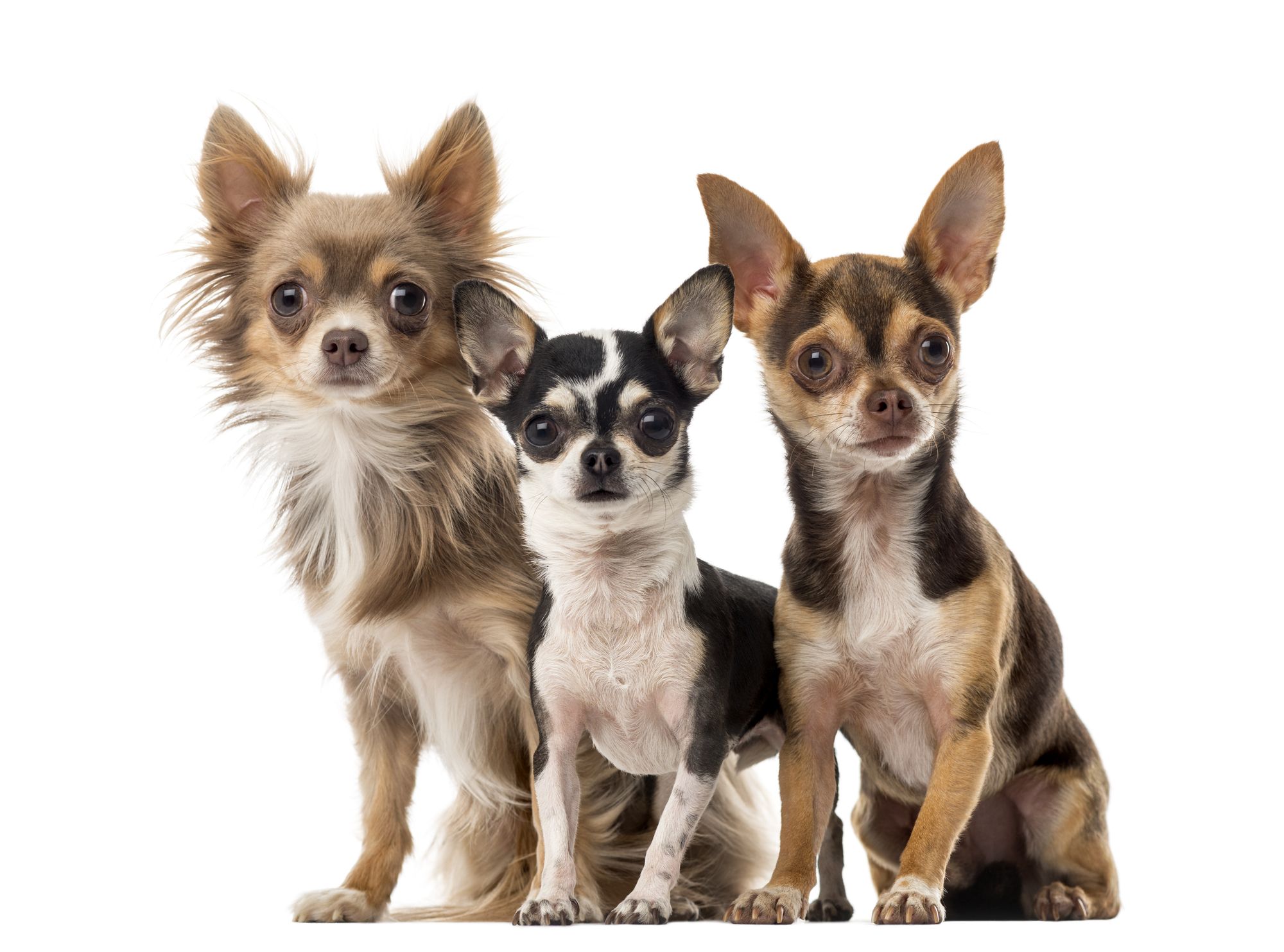Have you ever wondered if you can find a large Chihuahua? While it may seem counterintuitive, it is indeed possible to find a Chihuahua that is bigger than the typical tiny-sized ones we often envision. These larger Chihuahuas, known as “standard” or “medium” Chihuahuas, offer a unique and distinctive blend of the traditional Chihuahua qualities with a slightly larger size. Whether you are seeking a Chihuahua that is better suited for outdoor activities or simply prefer a larger companion, discovering a large Chihuahua can provide a refreshing alternative to the usual small-breed options.
While Chihuahuas are typically associated with their petite size, it is important to note that the breed standard does allow for variations in size. The American Kennel Club (AKC) recognizes two varieties of Chihuahuas: the long coat and the smooth coat. Within each variety, there can be a range of sizes, including what is known as the “standard” or “medium” Chihuahua. These larger Chihuahuas can weigh up to 10 pounds and stand around 10-12 inches tall. It is worth mentioning that size can also vary within individual litters, so it is always a good idea to consult with a reputable breeder or rescue organization to find the perfect large Chihuahua companion for you.
Looking for a large Chihuahua? While Chihuahuas are typically small breed dogs, there are some larger variations, often referred to as “standard” or “mega” Chihuahuas. These larger Chihuahuas can grow to weigh up to 12 pounds. If you’re interested in getting a larger Chihuahua, it’s important to do your research, as they may have different care needs compared to their smaller counterparts. Reach out to reputable breeders or rescue organizations specializing in larger Chihuahuas to find your perfect companion.

Can You Get a Large Chihuahua?
Chihuahuas are known for their small size and adorable appearance. Many people love these pint-sized pups and wonder if it’s possible to find a larger version of this popular breed. In this article, I will explore the topic of whether or not you can get a large Chihuahua, providing detailed information on the breed’s typical size, variations within the breed, and factors that may influence a Chihuahua’s size. So, let’s dive in and find out if it’s possible to have a large Chihuahua as your furry companion.
Understanding the Typical Size of a Chihuahua
Chihuahuas are one of the smallest dog breeds, typically weighing between 2 to 6 pounds (0.9 to 2.7 kg) and standing around 6 to 9 inches (15 to 23 cm) tall. These tiny dogs have a compact and delicate body structure, with a round head and bright, expressive eyes. Their small size makes them popular choices for people living in apartments or those who prefer a smaller pet companion.
The American Kennel Club (AKC) recognizes two varieties of Chihuahuas: the smooth coat and the long coat. Both types share the same size characteristics, but the long coat variety has a longer, flowing coat. It’s important to note that regardless of coat type, Chihuahuas are generally small dogs.
Variations Within the Chihuahua Breed
While Chihuahuas are typically small dogs, there can be some variation in their size within the breed. These size variations are influenced by factors such as genetics, breeding practices, and individual characteristics. Some Chihuahuas may be slightly smaller or larger than the average size, but it’s important to remember that they are still considered small dogs.
It’s worth noting that there are other small dog breeds that resemble Chihuahuas but may be larger in size. For example, the Chinese Crested and the Pomeranian are often mistaken for Chihuahuas due to their similar appearance. If you’re looking for a larger dog but still want a similar look to a Chihuahua, considering these breeds might be a viable option for you.
Additionally, mixed-breed Chihuahuas, or Chihuahua crosses, may inherit size traits from the other breed in their genetic makeup. This could result in a slightly larger Chihuahua mix, although they will still be considerably smaller than most larger dog breeds.
Factors Influencing a Chihuahua’s Size
A Chihuahua’s size is primarily determined by genetic factors inherited from its parents. If both parents are small Chihuahuas, it’s more likely that their offspring will also be small. However, if one parent is slightly larger or belongs to a different breed, the puppies may exhibit some size variation.
Nutrition and overall health also play a role in a Chihuahua’s size. Proper nutrition, feeding them a balanced diet, and providing regular exercise can help maintain a healthy weight and prevent obesity. Obesity can lead to various health issues and may make your Chihuahua appear larger than their actual size.
Lastly, there are cases where a Chihuahua’s growth may be stunted due to underlying health conditions or poor breeding practices. In such situations, it’s important to work closely with a reputable breeder or veterinarian to ensure the health and well-being of your Chihuahua.
Chihuahua Crossbreeds: Exploring Size Variations
In addition to purebred Chihuahuas, there are several popular Chihuahua crossbreeds that may exhibit size variations. Let’s take a look at a few examples:
1. Chihuahua-Dachshund Mix: Also known as a Chiweenie, this crossbreed can have a size range depending on whether it leans more towards its Chihuahua or Dachshund parent.
2. Chihuahua-Jack Russell Terrier Mix: Often referred to as a Jack Chi, this mix can have a small to medium size, again depending on the influence of each parent breed.
Benefits of Owning a Small Chihuahua
While you may not be able to find a large Chihuahua, there are many benefits to owning a small Chihuahua. Some of these include:
- Portability: Their small size makes them easy to transport, making them great travel companions.
- Space requirements: Small Chihuahuas don’t require as much space as larger dog breeds, making them suitable for apartment living.
- Low exercise needs: Chihuahuas have lower exercise requirements compared to larger, more active breeds. This makes them a good choice for individuals or families with a less active lifestyle.
- Affectionate companionship: Chihuahuas are known for their loyalty and love for their owners. They can form strong bonds and provide affectionate companionship.
Tips for Caring for a Chihuahua
If you decide to welcome a Chihuahua into your home, here are some essential tips for taking care of your furry friend:
- Diet and exercise: Provide a balanced, age-appropriate diet and ensure they get regular exercise to maintain a healthy weight.
- Socialization: Expose your Chihuahua to various environments, people, and other animals from a young age to encourage positive socialization.
- Grooming: Regularly brush your Chihuahua’s coat and clean their ears to prevent any potential hygiene issues.
- Training: Start training your Chihuahua early, focusing on positive reinforcement techniques to ensure they grow into well-behaved dogs.
- Regular veterinary care: Schedule regular check-ups with a veterinarian to monitor your Chihuahua’s health and address any concerns promptly.
The Popularity of Chihuahuas
Despite their tiny stature, Chihuahuas have gained significant popularity as companion animals. Their adorable appearance, feisty personality, and devotion to their owners have captured the hearts of dog lovers around the world.
Chihuahuas have been featured in movies, TV shows, and social media, further increasing their popularity. Many celebrities also own Chihuahuas, adding to the breed’s fame.
In conclusion, while you may not be able to find a large Chihuahua, their small size should not deter you from considering these delightful dogs as part of your family. Their unique characteristics and loveable nature make them wonderful companions, even in their compact form.
Did you know? According to a survey conducted by the American Kennel Club, Chihuahuas rank as the 30th most popular breed in the United States. Their popularity has steadily increased over the years, making them a beloved choice for many dog owners.
Key Takeaways: Can You Get a Large Chihuahua?
- Large chihuahuas are rare but not impossible to find.
- Chihuahuas are naturally small dogs, so finding a larger version may require patience and extensive search.
- Size can vary within the Chihuahua breed, so it’s important to communicate your preferences with reputable breeders.
- Consider adopting a mixed breed dog that resembles a large Chihuahua if finding a purebred is challenging.
- Proper care, diet, and exercise are essential for any dog, regardless of its size.
Frequently Asked Questions
Welcome to our FAQ section, where we answer common questions about large Chihuahuas!
1. What is a large Chihuahua like in terms of size?
A large Chihuahua is usually bigger than the average Chihuahua, but they are still small dogs overall. They can weigh between 6 to 10 pounds and stand around 9 to 12 inches tall at the shoulder. While they may not be as tiny as a regular Chihuahua, they are still considered small dogs.
Remember, the size of a Chihuahua can vary from dog to dog, even within the same litter. If you’re specifically looking for a larger Chihuahua, it’s important to communicate your preferences to the breeder or rescue organization.
2. Can you breed Chihuahuas to be larger?
Chihuahuas are a breed with a wide size range, but deliberately breeding them to be larger isn’t recommended. Chihuahuas should not be bred for extremes, as it can lead to health issues. It’s best to focus on breeding Chihuahuas with good overall health and conformation rather than trying to specifically breed for size.
If you’re looking for a larger Chihuahua, your best bet is to find a reputable breeder who has a track record of producing Chihuahuas on the larger end of the size spectrum. However, keep in mind that size can still vary within litters, and it’s not a guarantee.
3. Do large Chihuahuas have different exercise needs compared to regular-sized ones?
While large Chihuahuas may have slightly higher energy levels than their smaller counterparts, their exercise needs are still similar. All Chihuahuas, regardless of size, require regular exercise to keep them healthy and prevent weight gain. Daily walks, playtime, and mental stimulation are essential for their well-being.
It’s always a good idea to consult with your veterinarian or a professional dog trainer to determine the specific exercise needs of your large Chihuahua, as each dog is unique. They can provide guidance on the appropriate amount and intensity of exercise for your furry friend.
4. Are large Chihuahuas more prone to health issues?
Large Chihuahuas may not be as fragile as their smaller counterparts, but they can still be prone to certain health issues that are common in the breed. Some potential health concerns include dental problems, heart disease, patellar luxation, and eye issues such as corneal ulcers.
To minimize the risk of health issues, it’s crucial to provide your large Chihuahua with a balanced diet, regular exercise, and routine veterinary care. Regular check-ups with a veterinarian can help catch any potential health problems early, increasing the chances of successful treatment.
5. Can large Chihuahuas adapt well to apartment living?
Absolutely! Large Chihuahuas can adapt well to apartment living, just like their smaller counterparts. As long as they receive enough exercise, mental stimulation, and attention, they can thrive in an apartment environment. They are known for being excellent companion dogs and can adjust to various living spaces.
It’s important to note that all dogs, including large Chihuahuas, need regular walks and playtime, even if their living space is smaller. Providing them with opportunities to socialize and explore the outside world is important for their overall well-being. Mental stimulation activities, such as puzzle toys and training sessions, can also help keep them stimulated and happy in an apartment setting.

In conclusion, the key points of the article should be clearly understood by the reader. By following these guidelines, the article will effectively convey its message to a 13-year-old audience in a professional and easily digestible manner.
